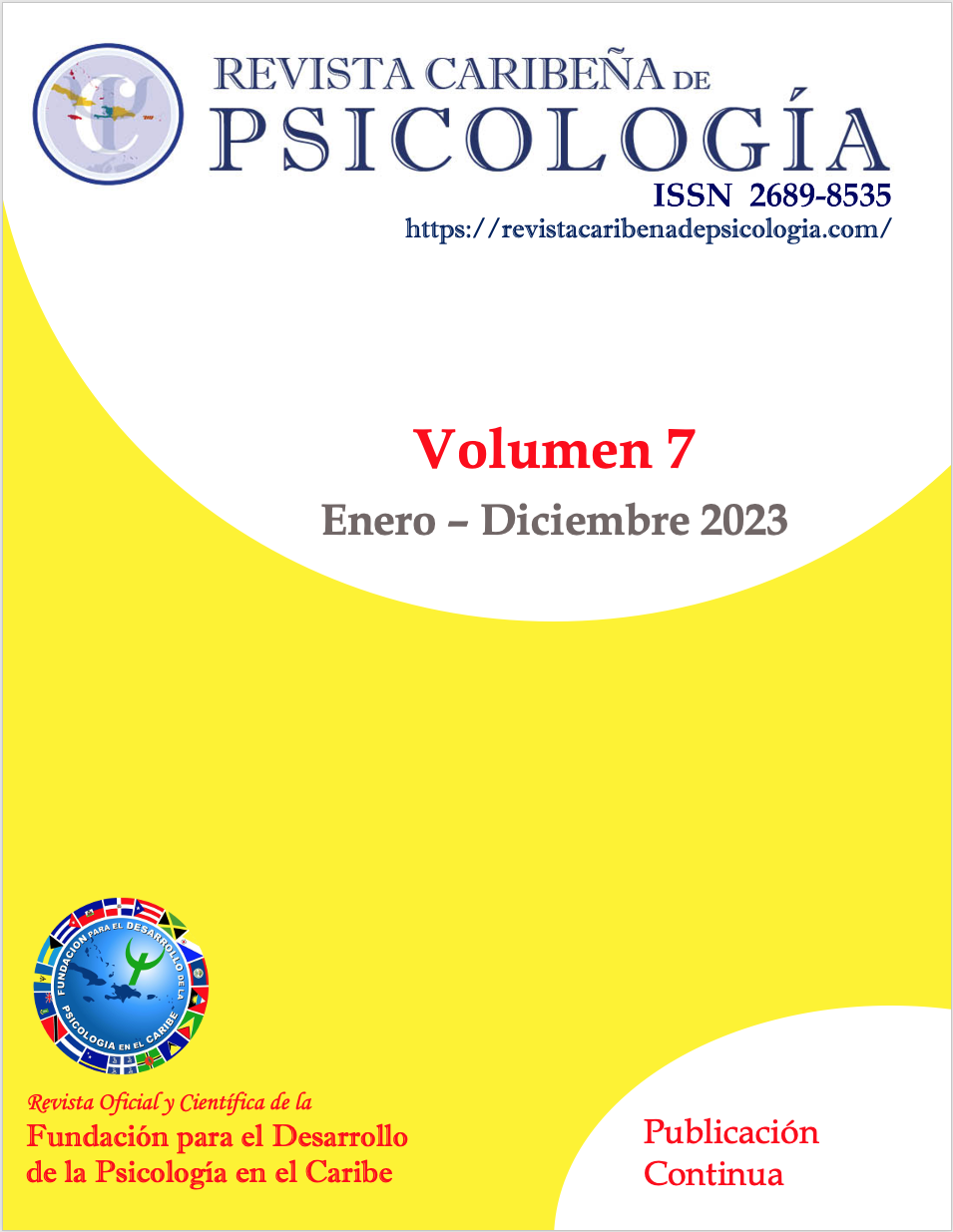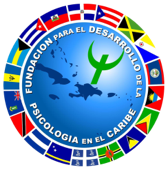Yoga para Bienestar Psicológico y Estrés Percibido en Adultos con Experiencias Adversas en su Infancia
DOI:
https://doi.org/10.37226/rcp.v7i1.7679Palabras clave:
Bienestar, Estrés, Trauma, YogaResumen
Las experiencias adversas en la infancia (ACEs) se asocian con disminución del bienestar psicológico y elevación del estrés. Investigaciones apuntan que el Yoga mitiga el estrés y potencia el bienestar psicológico. Este estudio examina si: (1) las ACEs se relacionan con el estrés y con el bienestar psicológico, y (2) si estas variables difieren con la práctica del Yoga. Se utilizó una muestra de 209 participantes con un mínimo de tres ACEs. Análisis de correlaciones biseriales arrojaron una relación positiva y significativa entre ACEs y estrés, y una relación negativa y significativa entre ACEs y bienestar psicológico. No se encontraron diferencias significativas en bienestar psicológico entre practicantes de Yoga durante 60 días y no practicantes. Practicantes de Yoga durante 2 años difirieron significativamente en el bienestar psicológico de no practicantes. Los resultados sugieren que las ACEs están asociadas a mayor estrés y menor bienestar psicológico. También sugieren que practicar Yoga por 2 años promueve el bienestar psicológico. Esto tiene implicaciones importantes para la inclusión del Yoga en contextos de psicoterapia.
Citas
Acosta, L.M & Ortegón, A. (2017). Bienestar psicológico y calidad de vida a través del yoga. Universidad Santo Tomás. http://repository.usta.edu.co/handle/11634/4310
American Psychological Association. (2010, April 30). El estrés es un problema de salud serio en los Estados Unidos. https://www.apa.org/topics/stress/estres-problema
American Psychological Association (2017). Stress in America: The State of Our Nation. Stressin AmericaTM Survey. https://www.apa.org/news/press/releases/stress/2017/state-nation.pdf
American Psychological Association. (2021, February 2). APA: U. S. Adults report highest stress level since early days of the COVID-19 pandemic [Press release]. https://www.apa.org/news/press/releases/2021/02/adults-stress-pandemic
Andrews, F. M., & McKennell, A. C. (1980). Measures of self-reported well-being: their affective, cognitive, and other components. Social Indicators Research, 8, 127-156. https://doi.org/10.1007/BF00286474
Baldiale, M. (2015). Tagleando corto. En Montalto, S. (Ed.) Geo-grafie minime. Jocker.
Beck, A.R., Seeman, S., Vertichio, H. & Rice, J. (2015). Yoga as a technique to reduce stress experienced by CSD graduate stu-dents. Contemporary issues in communication science and disorders, 42, 1-15. https://pubs.asha.org/doi/pdf/10.1044/cicsd_42_S_1
Benvenutti, M. J., Alves, E. da S., Michael, S., Ding, D., Stamata-kis, E., & Edwards, K. M. (2017). A single session of hatha yoga improves stress reactivity and recovery after an acute psychological stress task—A counterbalanced, randomized-crossover trial in healthy individuals. Complementary Therapies in Medicine, 35, 120–126. https://doi.org/10.1016/j.ctim.2017.10.009
Bevilacqua, L., Kelly, Y., Heilmann, A., Priest, N., & Lacey, R. E. (2021). Adverse childhood experiences and trajectories of in-ternalizing, externalizing, and prosocial behaviors from child-hood to adolescence. Child abuse & neglect, 112, 104890. https://doi.org/10.1016/j.chiabu.2020.104890
Bonilla, K. & Padilla, Y. (2015). Estudio piloto de un modelo grupal de meditación de atención plena (mindfulness) de manejo de la ansiedad para estudiantes universitarios/as en Puerto Rico. Revista Puertorriqueña de Psicología, 26(1), 072-087.
Bradburn, N. M. (1969). The structure of psychological well-being. Aldine. https://www.norc.org/pdfs/publications/bradburnn_struc_psych_well_being.pdf
Campo-Arias, A., Hoviedo, H & Herazo, E. (2014). Escala de es-trés percibido-10: Desempeño psicométrico en estudiantes de medicina de Bucaramanga, Colombia. Revista de la Facultad de Medicina, 2(3), 407-413. https://doi.org/10.15446/revfacmed.v62n3.43735
Chan, W., Immink, M. A., & Hillier, S. (2012). Yoga and exercise for symptoms of depression and anxiety in people with posts-troke disability: A randomized, controlled pilot trial. Alternati-ve Therapies in Health and Medicine, 18(3), 34-43. http://search.proquest.com/docview/1030143105?accountid=44825
Chapman, D. P., Whitfield, C. L., Felitti, V. J., Dube, S. R., Ed-wards, V. J., & Anda, R. F. (2004). Adverse childhood expe-riences and the risk of depressive disorders in adulthood. Journal of Affective Disorders, 82(2), 217–225. https://doi.org/10.1016/j.jad.2003.12.013
Cramer, H., Lauche, R., Langhorst, J. & Dobos, G. (2013). Yoga for Depression: A systematic Review and Meta-Analysis. Depres-sion & Anxiety (1091-4269), 30(11), 1068-1083. https://doi.org/10.1002/da.22166
Cohen, S. (1994). Perceived stress scale. http://www.mindgarden.com/documents/PerceivedStressScale.pdf
Deepeshwar, S., & Kumar, D. (2022). Beneficial Effect of Yoga-based Lifestyle Intervention on Anxiety and Depression in Young adults: Non-randomized Controlled Study. Internatio-nal Journal of Medicine and Public Health, 12(1), 12–19. https://doi.org/10.5530/ijmedph.2022.1.3
Díaz, D., Rodríguez-Carvajal, R., Blanco, A., Moreno-Jiménez, B., Gallardo, I., Valle, C., & Dierendonck, D. (2006). Adaptación española de las escalas de bienestar psicológico de Ryff. Psicot-hema, 18(3) ,572-577. https://www.redalyc.org/pdf/727/72718337.pdf
Emerson, D. & Hopper, E. (2011). Overcoming trauma through Yoga: Reclaiming yor body. North Atlantic Books.
Erdfelder, E., Faul, F., & Buchner, A. (1996). GPOWER: A general power analysis program. Behavior Research Methods, Instru-ments & Computers, 28(1), 1–11. https://doi.org/10.3758/BF03203630
Escobar, E.R., Herrera, S.P., & Obregón, I.E. (2019). Enseñanza del Yoga como técnica para disminuir los niveles de estrés en es-tudiantes de pregrado de la facultad de Salud Pública. Revis-ta Cubana de Reumatología, 21(2), 1-7. http://scielo.sld.cu/scielo.php?script=sci_arttext&pid=S1817-59962019000200017
Felitti, V. J., Anda, R. F., Nordenberg, D., Williamson, D. F., Spitz, A. M., Edwards, V., Koss, M. P., & Marks, J. S. (1998). Rela-tionship of childhood abuse and household dysfunction to many of the leading causes of death in adults. The Adverse Childhood Experiences (ACE) Study. American journal of pre-ventive medicine, 14(4), 245–258. https://doi.org/10.1016/s0749-3797(98)00017-8
Field, A. (2018). Discovering statistics using IBM SPSS Statistics (5th Ed.). Sage Publications.
Font, S. A., & Maguire-Jack, K. (2016). Pathways from childhood abuse and other adversities to adult health risks: The role of adult socioeconomic conditions. Child Abuse and Neglect, 51, 390–399. https://doi.org/10.1016/j.chiabu.2015.05.013
García Coll, C.T., Vélez-Agosto, N. M García Coll, C.T. & Vélez-Agosto, N.M. (Eds.). (2017). Perspectivas en desarrollo humano: Prevención y promoción en niños y adolescentes. Publicaciones Gaviota.
González, M.T. & Landrero, R. (2006). Síntomas psicosomáticos y teoría transaccional del estrés. Ansiedad y Estrés, 12(1), 45-61. https://www.redalyc.org/pdf/402/40211412.pdf
González-Rentas, C. (2022). Academic performance and adverse childhood experiences: Examining the effect of psychological trauma symptoms and social support on college students. [Disertación doctoral no publicada] Universidad Albizu, San Juan, Puerto Rico.
González-Rivera, J.A., Quintero, N., Veray, J., & Rosario, A. (2016). Adaptación y Validación de la Escala de Bienestar Psicológico de Ryff en una Muestra de Adultos Puertorriqueños. Salud y Conducta Humana, 3(1), 1-14.
Guinn, A. S., Ports, K. A., Ford, D. C., Breiding, M., & Merrick, M. T. (2019). Associations between adverse childhood experien-ces and acquired brain injury, including traumatic brain inju-ries, among adults: 2014 BRFSS North Carolina. Injury Preven-tion, 25(6), 514–520. https://doi.org/10.1136/injuryprev-2018-042927
Hernández, R., Fernández, C. & Baptista, P. (2010). Metodología de la investigación (5ed.). McGraw- Hill.
Kang, H., & Jang, S. (2021). Effect of mindfulness yoga on depres-sion severity, self-esteem, and quality of life in middle-aged men. Iranian Journal of Public Health, 50(7), 1334–1342. https://doi.org/10.18502/ijph.v50i7.6622
Kessler, R. C., McLaughlin, K. A., Green, J. G., Gruber, M. J., Sampson, N. A., Zaslavsky, A. M., Aguilar-Gaxiola, S., Al-hamzawi, A. O., Alonso, J., Angermeyer, M., Benjet, C., Bro-met, E., Chatterji, S., de Girolamo, G., Demyttenaere, K., Fa-yyad, J., Florescu, S., Gal, G., Gureje, O., Haro, J. M., … Wi-lliams, D. R. (2010). Childhood adversities and adult psycho-pathology in the WHO World Mental Health Surveys. The British Journal of Psychiatry: The Journal of Mental Science, 197(5), 378–385. https://doi.org/10.1192/bjp.bp.110.080499
Kiburi, S. K., Molebatsi, K., Obondo, A., & Kuria, M. W. (2018). Adverse childhood experiences among patients with subs-tance use disorders at a referral psychiatric hospital in Kenya. BMC Psychiatry, 18(1), 197. https://doi.org/10.1186/s12888-018-1780-1
Lazarus, R. (2000). Estrés y emoción. Manejo e implicaciones en nuestra salud. Desclée Brouwer.
Lemay, V., Hoolahan, J., & Buchanan, A. (2019). Impact of a yoga and meditation intervention on students’stress and anxiety levels. American Journal of Pharmaceutical Education, 83(5), 747-752. https://doi.org/10.5688/ajpe7001
Manyema, M., Norris, S. A., & Richter, L. M. (2018). Stress begets stress: the association of adverse childhood experiences with psychological distress in the presence of adult life stress. BMC Public Health, 18(1), 835. https://doi.org/10.1186/s12889-018-5767-0
McElroy, S., & Hevey, D. (2014). Relationship between adverse early experiences, stressors, psychosocial resources and well-being. Child Abuse & Neglect, 38(1), 65–75. https://doi.org/10.1016/j.chiabu.2013.07.017
Meinck, F., Cosma, A. P., Mikton, C., & Baban, A. (2017). Psycho-metric properties of the Adverse Childhood Experiences Abuse Short Form (ACE-ASF) among Romanian high school students. Child Abuse & Neglect, 72, 326–337. https://doi.org/10.1016/j.chiabu.2017.08.016
Mosley-Johnson, E., Garacci, E., Wagner, N., Méndez, C., Wi-lliams, J. S., Egede, L. E. (2018). Assessing the relationship between adeverse childhood experiences and life satisfaction, psychological well-being and social well-bieng: United States Longitudinal Cohort 1995-2014. Quality of Life Research, 28, 907-914. https://doi.org/10.1007/s11136-018-2054-6
Muñoz-Najar, M.G. (2018). Efectos de un programa de Hatha Yoga en el estrés percibido de estudiantes universitarios/as de una univer-sidad privada de Lima Metropolitana [Tesis para para licenciatu-ra]. Universidad Peruana Cayetano Heredia, Perú.
Murphy, A., Steele, M., Dube, S. R., Bate, J., Bonuck, K., Meissner, P., … Steele, H. (2014). Adverse Childhood Experiences (ACEs) Questionnaire and Adult Attachment Interview (AAI): Implications for parent child relationships. Child Abuse & Neglect, 38(2), 224–233. https://doi.org/10.1016/j.chiabu.2013.09.004
Neukirch, N., Reid, S., & Shires, A. (2019). Yoga for PTSD and the role of interoceptive awareness: A preliminary mixed-methods case series study. European Journal of Trauma & Disso-ciation, 3(1), 7–15. https://doi.org/10.1016/j.ejtd.2018.10.003
Novais, M., Henriques, T., Vidal-Alves, M. J., & Magalhães, T. (2021). When Problems Only Get Bigger: The Impact of Ad-verse Childhood Experience on Adult Health. Frontiers in Psychology, 12, 693420. https://doi.org/10.3389/fpsyg.2021.693420
Nurius, P. S., Green, S., Logan-Greene, P. & Borja, S. (2015). Life course pathways of adverse childhood experiences toward adult psychological well-being: A stress process analysis. Child Abuse & Neglect, 45, 143-153. http://dx.doi.org/10.1016/j.chiabu.2015.03.008
Organización Mundial de la Salud (2018). Adverse Childhood Expe-riences International Questionnaire (ACE-IQ). https://www.who.int/publications/m/item/adverse-childhood-experiences-international-questionnaire-(ace-iq)
Ortiz, S., Sandoval, E., Adame, S., Ramírez, C.E., Jaimes, A.L., Ruiz, A. (2019). Manejo del estrés; resultado de dos interven-ciones: cognitivo conductual y yoga, en estudiantes irregula-res de medicina. Investigación en Educación Médica, 30(8), 9-17. https://www.scielo.org.mx/scielo.php?script=sci_arttext&pid=S2007-50572019000200009
Papalia, D., Duskin Feldman, R., & Martorell, G. (2012). Desarrollo Humano (12th ed., p. 457). McGraw Hill.
Park, C. L., Finkelstein-Fox, L., Groessl, E. J., Elwy, A. R., & Lee, S. Y. (2020). Exploring how different types of yoga change psychological resources and emotional well-being across a sin-gle session. Complementary Therapies in Medicine, 49, 102354. https://doi.org/10.1016/j.ctim.2020.102354
Park, C. L., Finkelstein-Fox, L., Sacco, S. J., Braun, T. D., & Lazar, S. (2021). How does yoga reduce stress? A clinical trial testing psychological mechanisms. Stress and Health, 37(1), 116–126. https://doi.org/10.1002/smi.2977
Rhodes, A., Spinazzola, J., & van der Kolk, B. (2016). Yoga for Adult Women with Chronic PTSD: A Long-Term Follow-Up Study. Journal of Alternative and Complementary Medicine (New York, N.Y.), 22(3), 189–196. https://doi.org/10.1089/acm.2014.0407
Riccardi, I., Bilotta, E., Leone, L., Nicolò, G., Procacci, M., Semera-ri, A., & Carcione, A. (2020). Adverse experiences in childhood: Association with metacognition, personality disor-ders and distress. Journal of Psychopathology, 26(1), 46–53. https://doi.org/10.36148/2284-0249-366
Rosenthal, D. (1963). A suggested conceptual framework. In D. Rosenthal (Ed.), The Genain quadruplets: A case study and theore-tical analysis of heredity and environment in schizophrenia (pp. 505–511). Basic Books. https://doi.org/10.1037/11420-031
Ryff, C. D. (2018). Eudaimonic well-being: Highlights from 25 years of inquiry. In K. Shigemasu, S. Kuwano, T. Sato, & T. Matsuzawa (Eds.), Diversity in harmony - Insights from psycho-logy: Proceedings of the 31st International Congress of Psychology (pp. 375–395). John Wiley & Sons Ltd. https://doi.org/10.1002/9781119362081.ch20
Ryff, C. & Keyes, C. (1995). The structure of psychological weel-being revisited. Journal of personality and social psychology. 69(4), 719-727. https://doi.org/10.1037/0022-3514.69.4.719
Selye, H. (1976). Stress in health and disease. Butterworths.
Sahni PS, Singh K, Sharma N, Garg R (2021) Yoga an effective strategy for self-management of stress-related problems and wellbeing during COVID19 lockdown: A cross-sectional study. PLoS ONE 16(2), e0245214. https://doi.org/10.1371/journal.pone.0245214
Sheskin, D. (2011). Handbook of Parametric and Non PArametric Statistical Procedure (5th ed.). CRC Press.
Simcic, P., Knezevic, M. S., & Galic, R. (2019). Adverse childhood experiences and their relation to psychosocial aspects of adult individuals. Ljetopis Socijalnog Rada, 26(2), 185–211. https://link.gale.com/apps/doc/A607063146/AONE?u=anon~333f9861&sid=googleScholar&xid=11765f96
Streeter, C.C., Jensen, J.E., Perlmutter, R.M., Cabral, H.J., Tian, H., Terhune, D.B., Ciraulo, D.A. & Renshaw, P.F. (2007). Yoga asana sessions increase brain GABA levels: A pilot study. The Journal of Alternative and Complementary Medicine, 13(4), 419-426. https://doi.org/10.1089/acm.2007.6338
Stapleton, P., Dispenza, J., McGill, S., Sabot, D., Peach, M., & Raynor, D. (2020). Large effects of brief meditation interven-tion on EEG spectra in meditation novices. IBRO Reports, 9, 290–301. https://doi.org/10.1016/j.ibror.2020.10.006
Thompson, M. P., & Kingree, J. B. (2022). Adverse Childhood Experiences, Sexual Victimization, and Suicide Ideation and Attempts: A Longitudinal Path Analysis Spanning 22 Years. American Journal of Orthopsychiatry, 92(3), 302–309. https://doi.org/10.1037/ort0000613
Torres-Rivera, I. (2016). Impacto del Yoga en pacientes con el diagnós-tico de trastorno de personalidad límite. [Disertación doctoral no publicada] Universidad Albizu, San Juan, Puerto Rico.
Vidot-Hidalgo, F.P. (2019). Experiencias adversas en la infancia y funcionalidad: Efecto mediador de la depresión y efecto moderador de la resiliencia y el apoyo social en pacientes con dolor crónico en Puer-to Rico. [Disertación doctoral no publicada] Universidad Al-bizu, San Juan, Puerto Rico.
Vidot-Hidalgo, F.P., Pérez-Pedrogo, C. & Sánchez-Cardona, I. (2020). Adverse childhood experience and disability: The mediator effect of depression in patients with chronic pain. Poster presenta-tion session at American Psychological Association Conven-tion 2020, Washington D.C.
Wadhen, V., & Cartwright, T. (2021). Feasibility and outcome of an online streamed yoga intervention on stress and wellbeing of people working from home during COVID-19. Work, 69(2), 331–349. https://doi.org/10.3233/WOR-205325
Young, S.N. (2011). Biologic effects of mindfulness meditation: growing insights into neurobiologist aspects of the prevention of depression. Psychiatry Neurosa, 36(2), 75-77. https://doi.org/10.1503/jpn.110010
Descargas
Publicado
Cómo citar
Número
Sección
Licencia
Derechos de autor 2023 Sahily Fernández Diego

Esta obra está bajo una licencia internacional Creative Commons Atribución 4.0.







